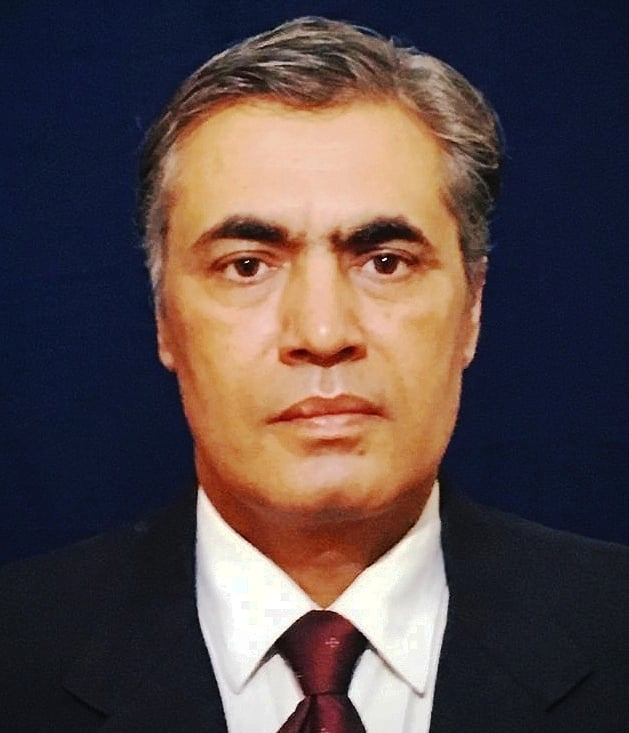
Piling on the Misery
Supplementary Finance Bill to create more problems for trade and industry
KARACHI: At a time when high inflation and unemployment have become a routine, the people have received the Supplementary Finance Bill (mini-budget) with great scepticism and little expectation that the economic struggles that closed out 2022 will abate in 2023.
The mini-budget along with the upsurges in the petroleum products and gas prices would further worsen the inflation and the economy, besides exerting unbearable pressure on common man and the businesses.
Irfan Iqbal Sheikh, president of the Federation of Pakistan Chambers of Commerce and Industry (FPCCI), expressed the collective anxieties and concerns of the business community vis-à-vis new taxes, the increase in electricity and gas tariffs; planned withdrawal of the rightful incentives for the export-oriented industries and further slowing down of the economy through contractionary and recessionary measures.
“If the exports continue to suffer, then there will be no balance of payments; the current account will deteriorate waywardly; reserves build-up will remain elusive; the revenue target will be missed and employment generation will remain at the lowest,” he added.
“The government must not throw exporters under the bus, as they are the real heroes who earn the foreign exchange reserves for the country,” Sheikh noted.
The apex trade body criticised the government for the total lack of consultation in the mini-budget with the business, industry and trade community — the real stakeholders of the economy and taxation system; and, the real engines of the economic growth, employment creation and revenue generation.
“Had we been consulted, we could have helped the government with a more practical or inoffensive approach to meet the IMF conditions,” the FPCCI chief added.
The business community is concerned over Rs170 billion taxation measures announced in the mini-budget in a bid to implement the IMF conditions to resume the loan programme under the Extended Fund Facility (EFF) for subsequent release of $1.2 billion tranche, which, under the current balance of payments crisis, might be a step that cannot be averted.
Dr Shamshad Akhter, chairperson of the Pakistan Stock Exchange (PSX), said that the political instability and inconsistencies of the policies is the primary reason of economic unrest in the country.
“The foreign exchange reserves have been declining for a while now. The game of acquiring new loans and blaming past governments for previous loans must stop,” she added.
Social media is also abuzz with a sharp scepticism and memes reminding the Pakistan Muslim League (PML-N) ministers of their tweets, criticising the very same measures taken by the previous government.
The economists resorted to saying that the state’s fiscal regime had turned extortionist and lost legitimacy.
The additional taxes on already taxed will create a chain reaction ranging industrial shut downs, reduced revenues, exports, forex earnings, enlarged budget and trade deficits and need for more loans.
In the current environment, the businesses are facing difficulties importing raw materials — essentially reducing the supply of products — coupled with the cost pressures and low demand.
This tells the businesses will have no other option but to pass on the full impact of cost pressures to the final consumers. Hence, the masses will eventually endure the cost in the form of higher price tags for goods and services.
Mohammed Tariq Yousuf, president of the Karachi Chamber of Commerce and Industry (KCCI), said that the mini-budget along with the upsurge in the petroleum products, electricity and gas prices would further worsen the inflation and the economy, besides exerting unbearable pressure on the common man and the businesses who will go into severe crises after the government has raised the general sales tax (GST) by one per cent to 18 per cent.
“The decision to raise GST would make all the goods expensive for the poor masses who were battling every day to earn bread and butter, whereas the industries and businesses, which were already underperforming due to various issues, will not be able to sustain the impact of anti-business measures announced in the mini-budget,” he added.
Yousuf feared that the economic slowdown would further deepen on account of massive hikes in the petroleum and electricity prices, especially the withdrawal of subsidies for the export-oriented sector would raise the electricity tariff by around 80 to 85 per cent, which would be lethal.
“This definitely needs to be revisited by visualising the injury it can cause to the export-oriented sector,” he remarked.
The government had already notified a massive hike in the gas prices by up to 124 per cent and even, gas price for the general industry has been increased by 35 per cent, which will inflate the costs of doing business in the manufacturing sector.
The large-scale manufacturing (LSM) had already nosedived to 3.5 per cent in December 2022, marking the sixth monthly fall in the current fiscal year.
“Consequently, Pakistan’s regional competitiveness is deteriorating, compared with India and Bangladesh, negatively affecting Pakistan’s economic growth, which has been predicted by the international agencies to go below the 2 per cent-mark in the current fiscal year, compared with 5.97 per cent last year,” the KCCI president added.
For him, the situation would lead to a massive hike in the inflationary pressure, which is likely to be countered by the State Bank of Pakistan (SBP) through an increase in the interest rates to 19 to 20 per cent. As a result, the country experiences the worst phase of stagflation, leading to a hit on the macroeconomic and revenue growth negatively and exposing the vulnerabilities in the current fiscal year.
“It is unlikely that such measures could bridge the net tax collection as the tax collection, in rupee terms, has depreciated 20 per cent at the import stage and the Federal Board of Revenue (FBR) would be able to collect 20 per cent more. So, if the revenue board succeeded in surpassing the target, the actual tax collection would be lower,” he said.
“This revenue is not the budgeted revenue, as it has been collected, owing to the rupee depreciation, we would like to request that this revenue should not be treated as tax revenue for the FBR and the government should fix the dollar value at the import stage to evaluate the duties, let’s say for example at Rs230, which would certainly help control the inflationary trends,” he remarked.
Mian Zahid Hussain, chairman of the National Business Group (NBG), said that the government has no other option but to accept the IMF conditions.
“Although the measures taken by the government will result in inflation, high cost of production and a further increase in the energy prices. But there is no other option but to accept the IMF,” he added.
The government has rightfully approached the IMF, otherwise the country would have defaulted.
“If the government opted for a default, then in such a scenario, the country will see a more adverse situation,” he added.
He expressed the hope that after taking harsh decisions, the government would be able to finalise the IMF loan programme.
“The release of a $1.2 billion tranche by the IMF will help the country improve its foreign exchange reserves and the international rating.”
Faraz-ur-Rehman, president of the Korangi Association of Trade and Industry (KATI), urged Prime Minister Shehbaz Sharif and Finance Minister Ishaq Dar to avoid such measures, as it would result in total shutdown of the industry.
Criticising the government for large expenditures, he suggested that taking austerity measures would ease the burden on the masses.
Inflation has already skyrocketed to 27.6 per cent in January 2023, compared with 13 per cent last year and now with an increase in the GST, the petroleum products and gas prices, the domestic food prices would go up to the unbearable level.
The KATI chief also suggested the government for a charter of economy because creating consensus would not provide a solution to the economic crisis.
comments
Faraz-ur-Rehman
KATI president

Inflation has already skyrocketed to 27.6 per cent in January 2023 and now with an increase in the GST, petroleum products and gas prices, the domestic food prices would go up to the unbearable level
Mohammed Tariq Yousuf
KCCI president

The decision to raise GST would make all the goods expensive for the poor masses, while the industries and businesses will be unable to sustain the impact of the anti-business measures
Irfan Iqbal Sheikh
FPCCI president

Had we been consulted in the mini-budget, we could have helped the government with a more practical or inoffensive approach to meet the IMF conditions
Catch all the Economic Pulse News, Breaking News Event and Latest News Updates on The BOL News
Download The BOL News App to get the Daily News Update & Live News.









 Read the complete story text.
Read the complete story text. Listen to audio of the story.
Listen to audio of the story.